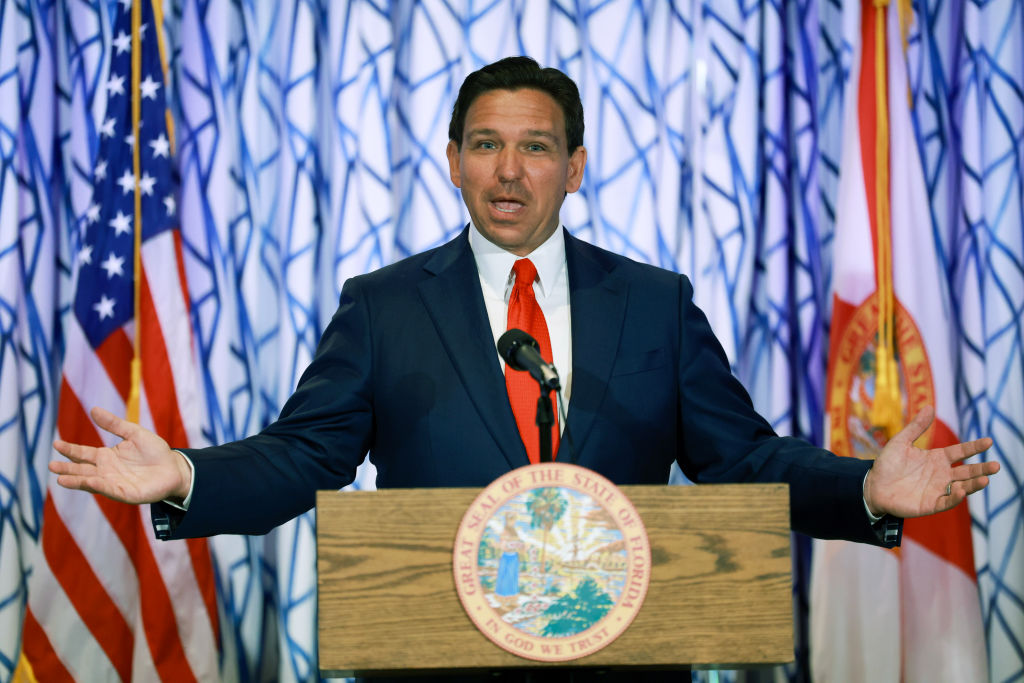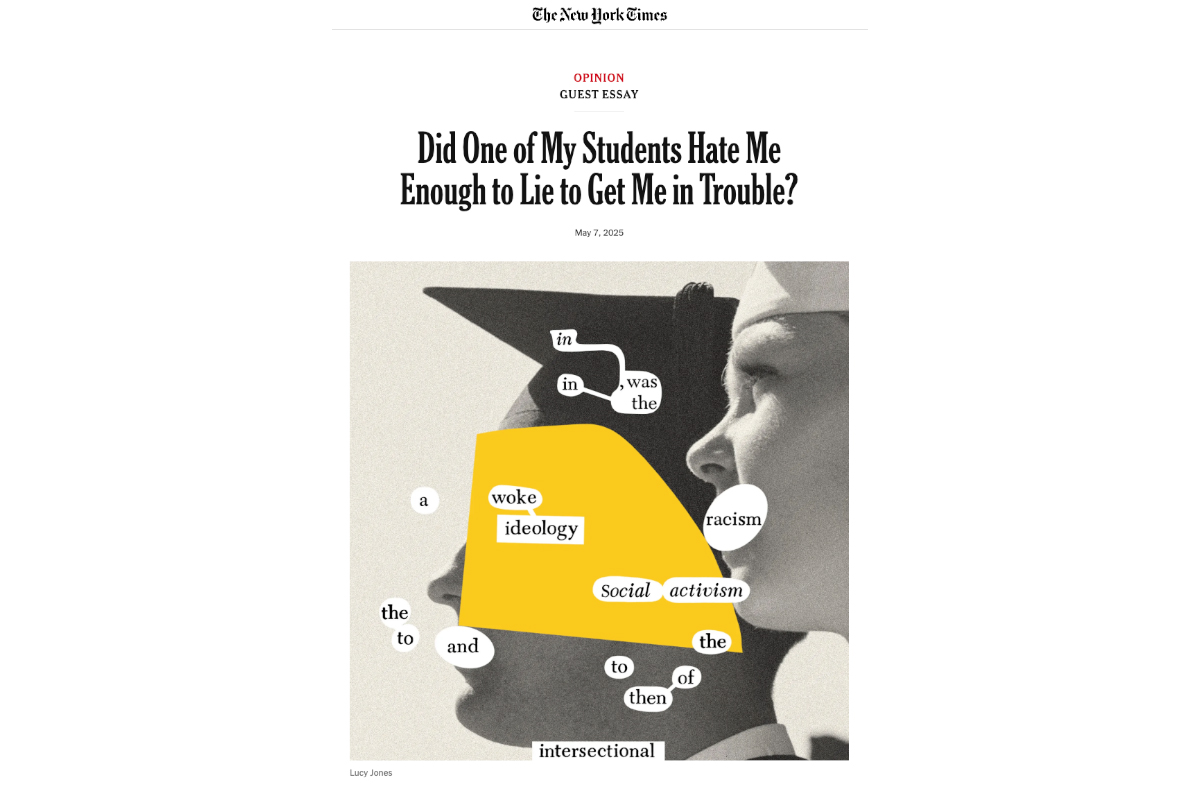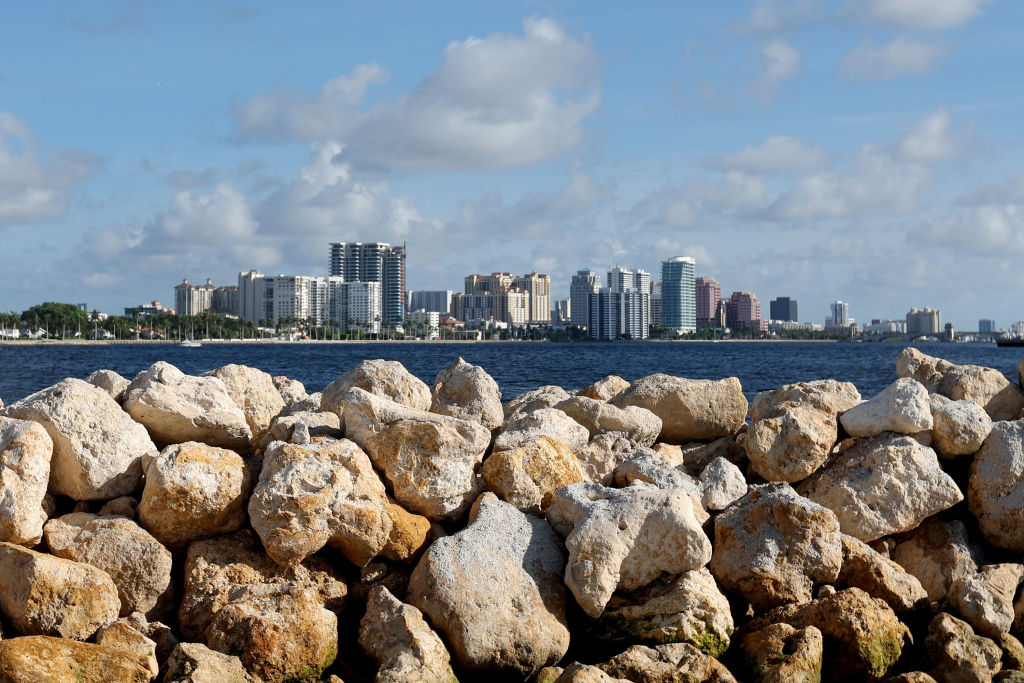A soon-to-be-public audit of Disney’s special governing district in Florida details the “shocking” ways in which the nearly $200 billion company was effectively governing itself for half a century.
Investigators described the Reedy Creek Improvement District as Disney’s “creature” that maximized company profits at the expense of Floridians, according to a copy of the report obtained by The Spectator. Disney placated Reedy Creek employees with millions of dollars’ worth of special park passes, significant discounts on cruises, food and merchandise and handpicked leadership through shady land deals to ensure that Reedy Creek would do its bidding. The auditor’s report in full reveals the stunning level of corporate cronyism that characterized Disney’s relationship with Reedy Creek since the district’s establishment in 1967.
“The case of Disney in Central Florida must be a blaring national wake-up call to citizens and elected officials about the problems inherent in creating special districts with the attributes that the RCID possessed: most especially, that complete and unaccountable governmental power was handed over to a private corporation, transforming a democratic institution into a private corporate monopoly,” the report states.
Florida governor Ron DeSantis signed legislation earlier this year to dissolve the Reedy Creek Improvement District and install his own five-person governing board after a protracted political fight with Disney.
In 2022, Disney publicly criticized DeSantis’s Parental Rights in Education bill, which restricted discussion of topics relating to sexuality and gender in school grades K-3, after widespread protests by employees. Disney declared that the bill “should never have passed and should never have been signed into law” and vowed to fight for the legislation to be repealed or struck down by courts. In response, DeSantis moved to unwind Disney’s special governance district and promised that the entertainment and theme park company would soon play by the same rules as other Florida businesses.
“Allowing a corporation to control its own government is bad policy, especially when the corporation makes decisions that impact an entire region,” DeSantis said after signing the bill to end Reedy Creek’s oversight of Disney.
Counsel for Reedy Creek and independent investigators compiled the report, which is set to be released Monday, to comply with the legislation, which requires a report on the district’s practices to be delivered to the governor and the Florida legislature within one year.
The investigative team points out that the initial establishment of the Reedy Creek Improvement District was a bait-and-switch by Disney. Disney lobbied the Florida government on the idea of building not just another theme park, but also a residential and commercial community known as EPCOT (Experimental Prototype Community of Tomorrow). The Florida legislature created Reedy Creek to oversee this ambitious development. Disney snatched up land throughout Orlando, but the city of the future would never come to be; today, EPCOT is just one of the four theme parks at Walt Disney World, and features rides such as Mission: SPACE and Test Track, plus the annual International Food & Wine Festival. There are practically no residents of Disney World’s theme park kingdom, which also includes two water parks, nearly two dozen hotels and a monorail system.
“Reedy Creek was simply a creature of Disney,” the report says. “Indeed, the city Disney said it planned to build never came to pass, and to this day, Disney’s special district is essentially void of individual residents.”
Disney subsequently managed to assert near total control over Reedy Creek. The legislation that created Reedy Creek required that landowners be given voting power over board members proportional to how many acres they owned in the district. Since Disney owned the vast majority of property in the district, they personally selected board members. Further, board members were required to own land in the district in order to serve, so Disney would qualify its chosen board members by temporarily deeding them small plots of land and paying the associated property taxes.
“On its own, this arrangement guaranteed that Board members — and therefore [Reedy Creek] as a whole — would be responsive to Disney’s preferences and would serve Disney’s interests,” the report explains. There are fifty-seven other taxpaying entities within the district — and even more tenants that pay taxes as part of their arrangements with Disney — that have practically no say in who represents them on the Reedy Creek board.
In addition to the rigged set-up of the board, Disney ensured Reedy Creek employees were loyal to the corporation’s whims by showering them with lavish perks. Disney gave employees millions of dollars in coveted annual park passes, major discounts on cruises, merchandise, resort rooms and golf, and access to private events at the parks. This led to the impression among Reedy Creek employees that they were merely an extension of Disney staff as opposed to members of its governing body. Reedy Creek employees, according to internal communications cited in the report, referred to Disney as “our friends” and often called themselves the “magic behind the magic.”
Further, because Disney paid the majority of taxes, Reedy Creek employees believed that they were obligated to only look out for the interests of Disney, rather than the broader public or other taxpayers. Non-Disney taxpayers reportedly had projects delayed by Reedy Creek if they attempted to use non Disney-approved vendors, while Reedy Creek would frequently use public funds for Disney’s private interests, such as building three parking garages for $700 million on Disney property. Disney, according to the report, often found itself exempt from the rules, regulations and tax burdens that would govern other businesses. Thanks to their usurpation of the Reedy Creek board, they also enjoyed near total control over planning and zoning decisions, had the ability to operate its own fire and police departments and could even unilaterally build a nuclear power plant if it chose to do so.
The Florida legislature was seemingly happy to offer Disney its own special district in the 1960s due to the many promises it made of improving the surrounding community. Disney brought jobs and economic growth and development to the region. However, it also came with many negative externalities that the investigators argue were not properly weighed when Reedy Creek was established. The affordable housing, transportation and other social services and community benefits that were meant to come with Disney’s EPCOT project never materialized — and so the stress of housing Disney’s employees fell on neighboring communities.
“The District is not home to any schools, hospitals or libraries and instead foists those costs upon the surrounding communities which must supply those services for Disney employees and their families,” the investigators explain.
“In the central Florida arrangement, Disney gets workers, but the region gets long commute times and heavy traffic, with the associated pollution and environmental consequences, unaffordable housing that leaves many on the brink of homelessness, and a glut of low-wage jobs with little promise of upward economic mobility,” they add.
Some of these costs would typically be offset by development impact fees, but Reedy Creek opted to never charge Disney for its environmental and economic footprint. Disney got away without paying approximately $130 million in impact fees based on its hotel rooms alone that “could have funded roadway projects to improve and expand Interstate-4 and intersecting county roads, for example, alleviating traffic concerns and improving commute conditions.”
And, over the years, Disney sought to isolate its tourists from surrounding areas so that they would only spend their hard-earned money at Disney. This caused other businesses to suffer, only further tightening Disney’s monopolistic grip on central Florida.
“The Hyatt Orlando Resort is a case study demonstrating the blight caused by Disney’s expansion in Central Florida. At the peak of the Central Florida tourism boom, the Hyatt Orlando Resort was the modern hotel of the future,” the report says. “But as Disney continued expanding its resort and other on-property amenities — including by granting exclusive theme park perks to guests staying on Disney property — the Hyatt suffered and was ultimately forced to close. Today, it is a blight on the US-192 corridor: an abandoned property allowed to decay, visited only by trespassers seeking eerie footage of the ‘futuristic’ hotel overgrown in vegetation and mold.”
The report says that Reedy Creek started as a “step stool” for Disney in 1967, and ultimately became an “immovable soaring ladder” that allowed Disney to “tower over rivals”.
“Complacency and an absence of political will allowed Disney to use the public-private partnership to entrench and amplify its corporate power,” the report’s authors conclude.
Disney moved quickly to permanently enshrine its special advantages when Reedy Creek’s dissolution seemed imminent. In the eleventh hour, Disney invoked the so-called “royal clause” and struck a long-term contract with Reedy Creek that allows the corporation to build and sell or assign development rights without board approval, among other agreements. Disney subsequently sued Florida for retaliation. Reedy Creek’s replacement, the Central Florida Tourism Oversight District board, countersued to void Disney’s last-minute deal. As litigation on both sides moves forward, the Central Florida Tourism Oversight District has unveiled a new website URL and logo.
Monday’s forthcoming report will certainly provide more ammunition to DeSantis and his allies who argue they were more than justified in stripping Disney of its special district and installing their own.
“As the foregoing analysis demonstrates, the governance of the District was in dire need of reform, and thus the legislature was amply warranted in passing 2022 Florida Senate Bill 4C and 2023 Florida House Bill 9B,” the auditors concluded.


























Leave a Reply